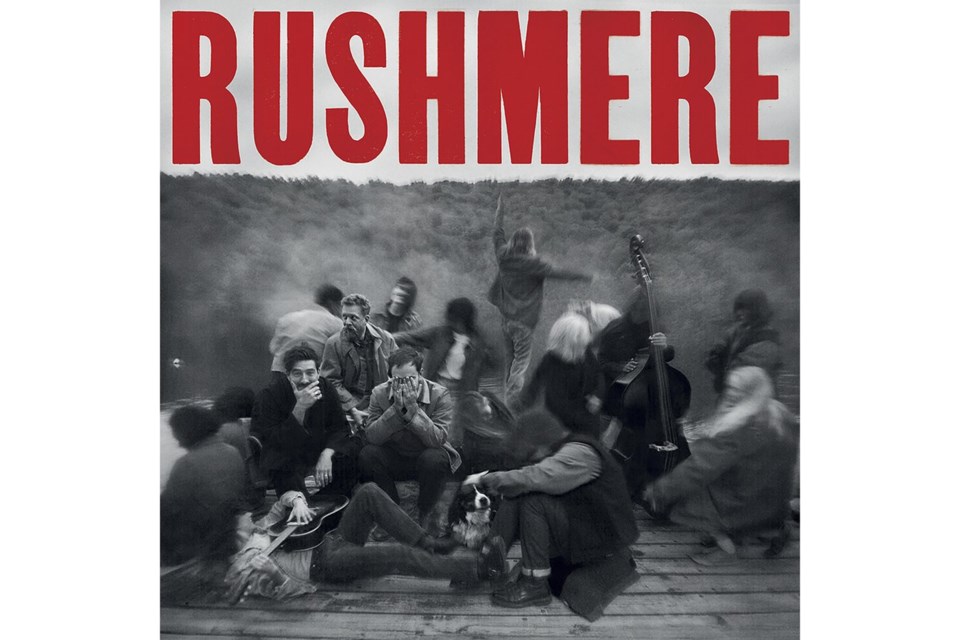In the 2010s, stomp-clap rock ruled. The English band had not just ushered in a new wave of bluegrass Americana revivalism, they'd created a movement. Then life happened: the COVID-19 pandemic caused delays, banjoist and lead guitarist and frontman Marcus Mumford released a solo album. Now a trio, Mumford & Sons are back with their fifth studio album and first in nearly seven years, “Rushmere.”
It’s a familiar-feeling record — of course there are banjos — with instantly recognizable folk instrumentation reinforced by swelling vocals. In that way, it detours slightly from their last offering, 2018's “Delta,” with its electronic interludes. Instead, “Rushmere” directly embraces the band's folk heritage.
To create “Rushmere,” Mumford & Sons enlisted producer Dave Cobb and recorded in Nashville, Tennessee; Savannah, Georgia; and at Mumford's U.K. studio in Devon. It's both a return-to-home and an exercise in ambition. Opener “Malibu” begins with muted percussion and acoustic guitar strums, raising the question: Is this going to be a quiet, introspective record?
Marcus Mumford’s voice comes in, then piano, then the stacked vocal harmonies, then the banjo. The song’s texture gets richer and richer, and the question answers itself. This is the foot-tapping M&S that originally fueled the band’s popularity, from their 2009 debut “Sigh No More” to the years that followed.
“I’m still afraid/I said too much/Or not enough,” Mumford sings. He sets the tone for an album that grapples with weighty issues like truth, hypocrisy and lies all while tapping into the band’s folk roots. Allusions to Christianity crop up in the album, but Mumford doesn't dwell too much on metaphor. Instead, these songs are refreshingly transparent.
Take “Rushmere,” the second single off the album and its title track. The song is pure nostalgia, named after the London pond where the band hung out in their early days and imagined what their futures would look like.
“Don't you miss/The breathlessness/The wildness in the eye?” Mumford sings, reflecting back with the wisdom that comes with age. “Come home late in the morning light."
But the album is not just a band attempting to reinvent the wheel. Bluesy bass and electric guitar make “Truth” the most rock ‘n’ roll song on the album, and it stands out all the more because it follows the finger-picking ballad “Monochrome.”
“Carry On,” the record’s parting song, has perhaps the heaviest lyrics and most overt religious themes, balanced by bright guitars and gentle percussion. Mumford confronts the church doctrine of “original sin” with its potential for hypocrisy.
“I will take this darkness/Over any light you cast/You and all your original sin," he sings. “Carry on/'Cause there’s no evil in a child’s eyes.”
Across 10 tracks, “Rushmere” feels short but full, a satisfying contrast and a welcomed return for fans of the band — and anyone open to their folky existentialism.
___
More AP reviews:
Mike Catalini, The Associated Press




